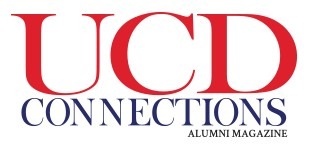At University College Dublin, research is more than the pursuit of knowledge – it is a catalyst for real-world change that transcends disciplines and borders. Our alumni clearly demonstrate, in meaningful ways, why research matters. Through bold enquiry and collaborative endeavour, they highlight the lasting value of research and its capacity to shape a better future. Their perspectives are both inspirational and grounded, demonstrating how they are addressing society’s greatest challenges, driving economic growth, informing policy, improving health outcomes, and enriching cultural and community life. These contributions not only strengthen UCD’s reputation as a leading research-intensive university, they also deliver meaningful, measurable impact in Ireland and globally.
NAVIGATING THE LEGAL SYSTEM

We live in a time where uncertainty is certain, disruption constant, growth uneven. The need for an anchor – effective, trusted, legislative and regulatory change is vital for the public interest. And given current geopolitics, nothing can be taken for granted. At the Law Society, I’m clear that our research makes a positive contribution to national policy making and our working approach is twofold.
Firstly, we actively share the expertise and experience of solicitors as front-line advocates within the legal system. It helps to shape policy development at its earliest point so that complex legislation is informed and guided by practical experience and foresight. This data is collected through specialist legal committees, practitioner focus groups, case studies and direct insights. To the average observer, the Law Society contribution should be low key as it seeks only to support a workable and effective change to the legal system.
Secondly, the Law Society’s Centre for Justice and Law Reform is future-focused and is the first research centre of its kind in Ireland to conduct evidence-based research on law reform. The aim is to improve the public’s experience of the Irish justice system. The Centre considers best practice, new thinking, and stakeholder experience to ensure discourse and debate on matters facing the Irish public. Access to Justice, Economic, Social, and Cultural Rights and Evolving Legal Services are currently in focus. The most recent Summer School event brought together 200 policymakers to discuss and engage on the topic of Defending Democracy: Legal Responses to Emerging Threats.
At the Law Society, research makes a positive contribution to national policy making …
NEW FRONTIERS IN SUSTAINABLE NUTRITION
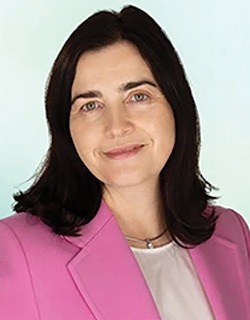
Research and innovation are critical drivers of future growth. Whether it be in digital technology, health sciences, or in the understanding of nutrition, new discoveries provide the impetus to our forward momentum, enabling us to live longer, healthier, and more prosperous lives.
At Kerry, we recognise and value this fundamentally important activity, and its role in advancing our purpose, to create a world of sustainable nutrition. The work undertaken by more than 1,200 Kerry scientists around the world provides the fuel for our future business growth, creating the food and beverage products of tomorrow.
Over the past ten years, Kerry has invested over €3 billion in science and technology capabilities, enabling research which has advanced our understanding in myriad ways; for example, by shedding light on how nutrition and the microbiome interact to influence cognition; how enzymes can be leveraged to lower exposures to potential dietary carcinogens; and how the power of biotechnology and precision fermentation can be harnessed to combat resource scarcity in key product categories, such as coffee and cocoa.
In order for research to thrive, it needs ultimately to be applied. Our Global Innovation Centre at Naas is home to Kerry’s global IP, and powers an international network of innovation centres to ensure that our research finds its commercial application all over the world, generating the returns needed to fund the next discoveries.
Lastly, we know too that research cannot happen without researchers – the skilled scientists and practitioners who can imagine, theorise, and demonstrate the substantive concepts that seed new science, and new possibilities. We appreciate the very important role that UCD and the third-level sector plays in creating the next generation of researchers, who will help drive us all forward.
PATIENT EXPERIENCE AND OUTCOME
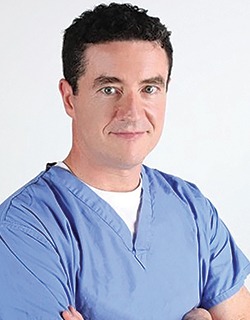
University research provides a critical and unique environment where multidisciplinary expertise – spanning engineering, medicine, materials science, and computer science – can converge to address complex healthcare challenges. This collaborative ecosystem actively supports academic and clinical cooperation and is therefore driven by real-world clinical challenges, ensuring that solutions are patient-centred and clinically applicable. It also fosters the discovery, development and refinement of technologies such as the innovative embolisation solutions we are working on at LaNua Medical.
Embolisation is a minimally invasive procedure that involves blocking blood vessels to treat conditions such as aneurysms, tumours, or internal bleeding. University-driven research into new embolic devices and techniques can improve patient outcomes by reducing the risk of complications, such as nontarget embolisation or post-procedure inflammation. These technical improvements can lead to clinical improvements such as shorter recovery times, lower complication rates, improved efficacy and reduced hospital stays, benefiting both patients and healthcare systems. They also open exciting possibilities for synergy with other treatments. Looking ahead, research into smart embolisation systems could further integrate embolisation with targeted cancer drug delivery, immunotherapy, gene therapy, or nanomedicine. New devices will play a key role in ensuring these advanced therapies remain localised, reducing toxicity and enhancing therapeutic impact.
Through programmes like the UCD MedTech Innovation Team and collaborations with Ireland’s national hospitals and research bodies, UCD aims to bridge the gap between laboratory research and clinical applications. The University also provides access to seed funding and enterprise initiatives through NovaUCD, encouraging commercialisation and start-up formation. These facilities and networks have inspired and supported the formation and spin-out of LaNua Medical. In short, university research is essential in driving forward safer, more effective, and less invasive medical technologies, improving patient outcomes and shaping the future of healthcare.
PREDICTING THE WEATHER
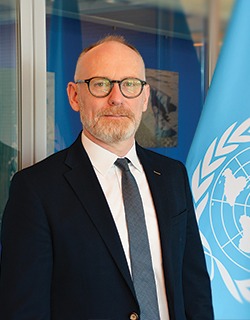
Ireland is increasingly experiencing more frequent and severe high-impact weather and climate events, presenting significant challenges to national resilience and wellbeing. In this context, Met Éireann’s world-class scientific expertise in meteorology and climatology stands as a vital national resource, dedicated to protecting lives and property while supporting societal wellbeing. This mission is underpinned by state-of-the-art science and technology, with Met Éireann driving progress in weather, flood, and climate prediction models, supercomputing, satellite and surface observations, and cutting-edge weather and climate research.
This work is carried out in close collaboration with leading European scientific institutions and research networks. Domestically, Met Éireann engages with Ireland’s research ecosystem primarily through its Weather and Climate Research Programme. A flagship initiative within this programme, TRANSLATE, equips Ireland for a changing climate by delivering accessible, actionable climate data to inform decision-making across sectors. This project is delivered in partnership with the Irish Centre for High-End Computing (ICHEC) and MaREI, the SFI Research Centre for Energy, Climate and Marine at University College Cork.
Met Éireann partnered with UCD in 2024 to establish a Professorship of Weather and Climate Research, with a dedicated research centre scheduled to open later this year. The launch of this pioneering role and facility seeks to integrate artificial intelligence and data science to enhance forecasting of extreme weather, flood risks, and long-term climate trends. As the challenges of a changing climate grow, Ireland’s investment in world-class weather research reflects a strong national commitment to safeguarding the future through knowledge, preparedness, and scientific excellence.
Met Éireann partnered with UCD in 2024 to establish a Professorship of Weather and Climate Research.”
A COMPLEMENTARY RELATIONSHIP
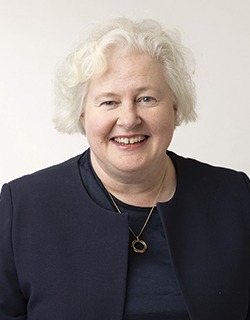
The Central Statistics Office (CSO) and UCD share a complementary relationship rooted in a commitment to evidence-based research and excellence. Both institutions play key roles in advancing understanding of changes taking place in Ireland’s society and economy.
To advance this work, the CSO supports all universities with access to Research Microdata Files including, for example, UCD’s important research on Growing Up in Ireland (GUI), the National Longitudinal Study of Children. In addition, the Irish Social Science Data Archive (ISSDA), hosted at UCD, serves as a vital repository of CSO and academic data, facilitating widespread access for researchers.
UCD’s MA in Statistical Data Science is an EMOS (European Master in Official Statistics) programme and equips graduates with key skills and experiences that closely align with the needs of the CSO in its expanding role. This includes the CSO’s delivery of the National Data Infrastructure’s (NDI) standards, skills and services to utilise data as a national asset. We are proud of how our statistical outputs are used in UCD and other universities on a daily basis driving innovation, research and learning.
A HEALTHY EARLY LIFE

At Kendal Nutricare, research underpins every stage of our work, from formulation to factory floor. In early life nutrition, our Research & Development teams are constantly working to translate emerging science into meaningful innovation. Scientific evidence informs not only the nutritional profile of our products, but also the stringent quality and safety processes behind them.
We start with full-cream whole milk as our base, preserving milk fat globule membrane (MFGM) and phospholipids to better reflect the structure of breast milk and support cognitive and immune development. Our formulations include dual prebiotics (GOS and FOS) to nourish the gut microbiome, alpha-lactalbumin to optimise protein quality and digestibility, and essential fatty acids ARA and DHA to support brain and visual function. Beyond nutrition, research drives our operational standards – from microbiological safety protocols to the optimisation of spray drying for nutrient stability and manufacturing efficiency. Our facility operates with a pharmaceutical-grade mindset, where precision, hygiene and consistency are paramount.
This combination of scientific nutrition and operational excellence is central to our ability to innovate while earning the trust of healthcare professionals and parents alike.
INVESTING IN UNIVERSITIES: A BUSINESS IMPERATIVE

Enterprises such as Meta, along with companies across Ibec’s membership, are experiencing an unprecedented pace of change in skill requirements. The availability of talent remains a top priority for Irish business. A high quality, engaging and dynamic education system plays a vital role in equipping society to meet the challenges of climate change, digitalisation and infrastructure development.
Universities such as UCD provide an excellent foundation. However, to ensure they remain globally competitive, it is important to address the longstanding underinvestment in the sector. Increased support will help close the gap with international peers, enhance our global reputation and strengthen our ability to attract world class research and business investment.
The recent OECD Review of Skills in Ireland highlights potential to improve workforce development and lifelong learning. By investing in people and skills, Ireland can navigate the digital and green transitions while enhancing innovation and leadership. Ibec welcomes the €4.5 billion investment in national research, including a successor to the Programme for Research in Third Level Institutions, which Ibec had long called for. This will modernise infrastructure and boost Ireland’s competitiveness in key sectors.
